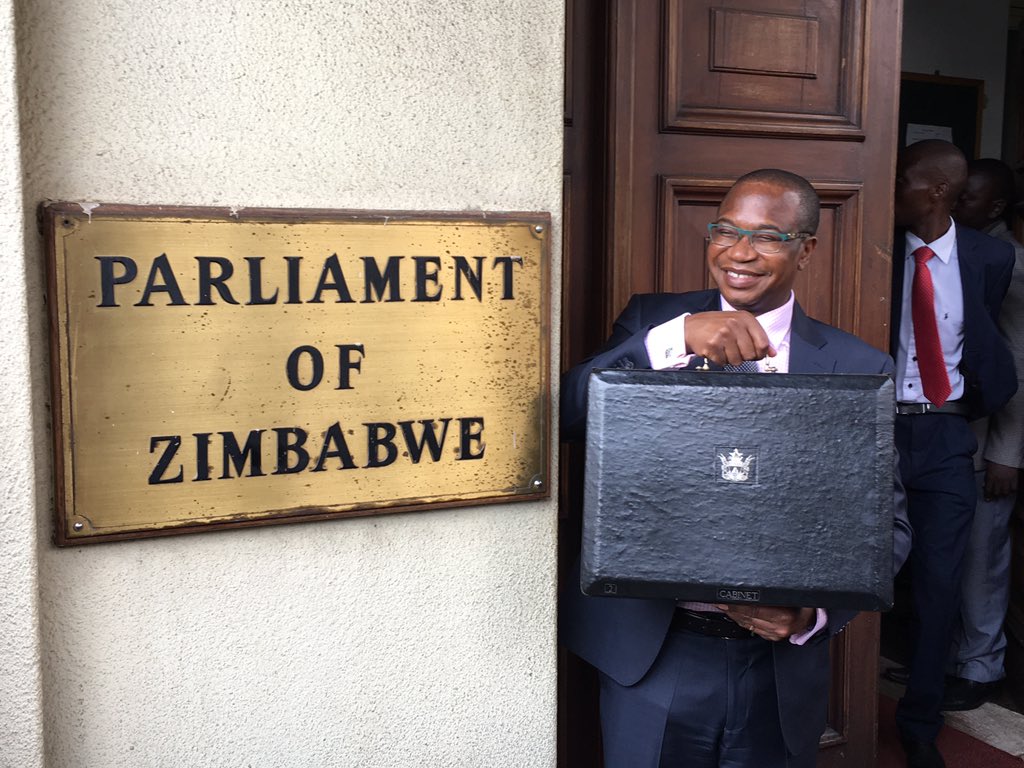Chigumbu Warikandwa
Austerity is a new term on the vocabulary of the average Zimbabwean. Regardless of the fact that the government of Zimbabwe designed and is enforcing austerity on the economy, fewer than expected people have sought to understand the meaning of this term and its effects.
According to online search engine Wikipedia, ‘austerity is a political-economic term referring to policies that aim to reduce government budget deficits through spending cuts, tax increases, or a combination of both. Austerity measures are used by governments that find it difficult to pay their debts. The measures are meant to reduce the budget deficit by bringing government revenues closer to expenditures, which is assumed to make the payment of debt easier.
Austerity measures also demonstrate a government's fiscal discipline to creditors. True to the above, it is not in dispute that the government has been lagging behind in servicing both its domestic and external debt. This is an undesirable state of economic affairs as it diminishes the number of people and organisations interested in providing lines of credit such a government. This is not in any way unexpected. He who plays truant with repaying borrowed money will not be entrusted with new loans, its natural.
According to the Cambridge English Dictionary, 'austerity is the condition of living without unnecessary things and without comfort, with limited money or goods, or a practice, habit, or experience that is typical of this.'
And true to the above, government is seeking to prune away all unnecessary expenditure. Please read unnecessary as things that can be avoided in consumption without endangering the life of an individual. Such things in other words can be said to be luxuries. Examples may include foregoing driving a private car and opt to use public transport or foregoing using motorised transport and walk instead.
If austerity comes into full swing, people travelling between the CBD and nearby suburbs like Mbare, Milton Park, Eastlea and Belvedere will walk. Despite the pain, this new practice is also healthy. Lots of ailments draining the national fiscus are sponsored by certain lifestyles that cannot survive under austere conditions. Neglecting to pay national debts would see our children inheriting this debt and would need their own austerity design to get out of it. Who wants to leave their children the inheritance of debt?
The said average Zimbabwean is not up to speed with who needs to participate in the austerity project. The reality of this ambitious project is that it is not government alone that has to be austere. Every citizen has to participate in it. Similarly, when government borrows, it borrows for every citizen. When it repays, it also repays for every citizen. Neglecting to service debt would put future generations into a debt fix they would not be able to get out of.
How did we end here? We ended here because of certain economic fundamentals that came to be from our own actions. Today's economic problems cannot be offloaded to future generations who did not have a hand in producing the same problems.
Austerity means pain. The Shona language says it is the bad tasting medicine which cures the most. Five course breakfasts cannot be a tool of austerity.
Frugal survival is the way to go. Climbing down from a five course breakfast to only a mug of lemon tea and a scone means that that particular household has avoided contributing to a bloated import bill that demands and accesses Brazilian made polony and bacon, Kenyan chocolate and cheddar cheese. This spared money will be used to offset the national debt.
As a controller and consumer of the biggest chunk of public resources, government's biggest recurrent expenditure involves the remuneration of its workforce. Government also collects wage based taxes from the same pool of workers. According to the Zimbabwean labour tax, the more one earns, the higher his tax contribution. Therefore, government's lack of appetite in increasing wages for its workforce means it is fighting off the temptation of reaping more in terms of labour based tax. This is another form of purposive austerity.
The outcry that standards of living have fallen was not anything that government did not expect. If anything, any austerity which is received without complains of declining living standards is not by any way worthwhile austerity. In the beginning, government never promised anyone a good life inside austerity.
To young men intending to settle down, the days in the run up to meeting a potential wife's family to formalise the courtship into marriage through the payment of dowry/roora are days of hard hat area austerity; the target being to build the required fund for the roora ceremony. Any man who chooses to be spendthrift during this time will leave a lifetime debt to his future children. That will be a foolish father.
Austerity is a national project that must be driven by every patriotic citizen. Nobody must whimper and cry-baby the current austerity. Austerity is for everyone to carry not some unseen people.
If you feel that the quality of life is depreciating, that is the desired result. It means austerity is working perfectly. As a country we have engaged lower gears in order to climb beyond the hill. Never mind the slow speed, the objective will be made. It’s a passing national phase. I said national, not individual. Let’s crawl forward; we will see the descending limb of the terrain soon




